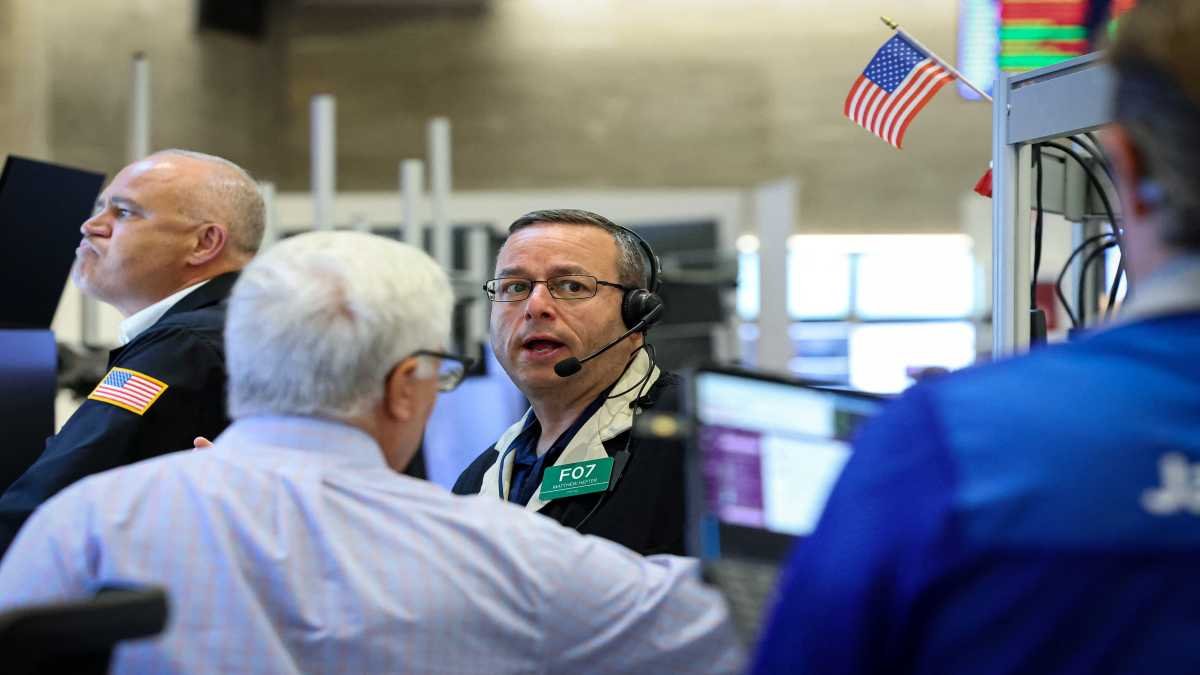
NEW YORK – The S&P 500 and Nasdaq Composite surged to record closing highs on Tuesday, as fresh inflation data met expectations, strengthening investor confidence that the Federal Reserve will cut interest rates as early as next month.
The market rally was fueled by a report from the Labor Department showing that the Consumer Price Index (CPI) rose a modest 0.2% in July. The annual inflation rate came in slightly below forecasts, prompting calls from U.S. President Donald Trump for the central bank to lower borrowing costs.
The encouraging inflation figures had an immediate impact on the bond market, with yields on shorter-dated Treasury bonds, which are sensitive to interest rate expectations, slipping. According to rate futures, traders are now pricing in an 88.8% probability of a 25-basis-point rate cut by the Federal Reserve in September.
“The CPI data is supportive for equities overall, getting some good news with the Fed looking more on track to cut in September,” said Katherine Bordlemay, co-head of client portfolio management at Goldman Sachs Asset Management. She added that investors should “continue to lean into the theme of the big are getting bigger. We continue to have conviction around mega-tech and technology.”
The Dow Jones Industrial Average rose 483.52 points, or 1.10%, to close at 44,458.61. The S&P 500 gained 72.31 points, or 1.13%, to end the day at a record 6,445.76, while the Nasdaq Composite advanced 296.50 points, or 1.39%, to finish at a new high of 21,681.90.
Several individual stocks made significant moves:
-
Intel Corp (INTC.O) climbed 5.6% after President Trump announced he had an “very interesting” meeting with CEO Lip-Bu Tan, whom he praised. The positive comments marked a sharp reversal from last week when Trump had demanded Tan’s resignation.
-
Alphabet (GOOGL.O) shares rose 1.2% following news that AI search company Perplexity made a $34.5 billion cash offer to acquire its Chrome browser.
-
Cardinal Health (CAH.N) was a notable decliner, dropping 7% after the drug distributor announced a $1.9 billion deal to acquire healthcare management firm Solaris.
The rally was broad-based, with several sectors seeing strong gains. The Russell 2000 index, which tracks small-cap companies, advanced nearly 3%. An index of airline stocks surged 8.87%—its biggest one-day jump in over a month—after data revealed airfares rose 4% in July. Bank stocks also rallied, with the S&P 500 Banks index up 2.1%, as a steepening yield curve could potentially boost lending profits.
The positive sentiment was further supported by an extension of the U.S.-China tariff truce until November 10, which staved off the immediate threat of triple-digit duties. This easing of trade tensions, combined with strong tech earnings and rate cut expectations, has fueled a powerful rally in recent weeks, drawing the largest inflows into U.S. stocks in two years last week, according to BofA Global Research data.
Despite the optimism, some analysts remain cautious. “This is still early innings of this process,” said John Velis, a macro strategist at BNY, warning that the effects of tariffs could complicate the Fed’s rate-cutting decisions in the autumn.
Market breadth was overwhelmingly positive. On the NYSE, advancing issues outnumbered decliners by a 4.26-to-1 ratio. On the Nasdaq, the ratio was 2.69-to-1. Trading volume on U.S. exchanges was 16.40 billion shares, slightly below the 20-day average of 18.3 billion.





